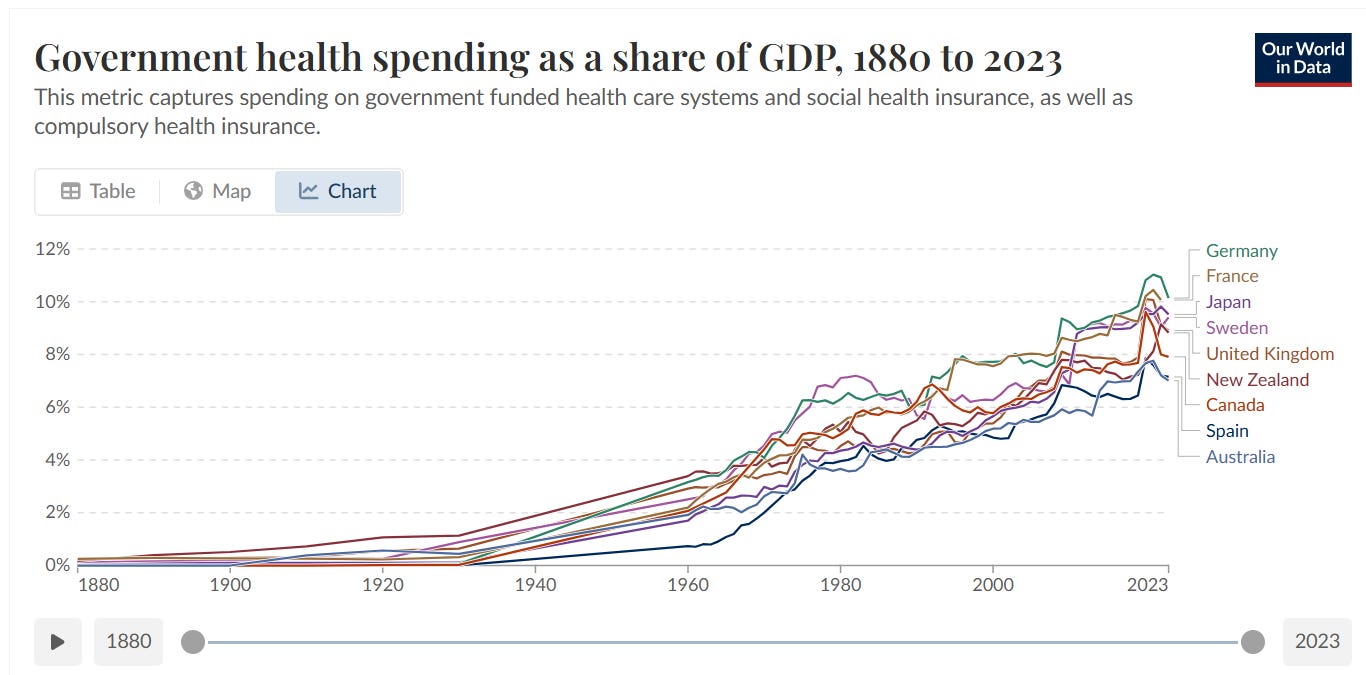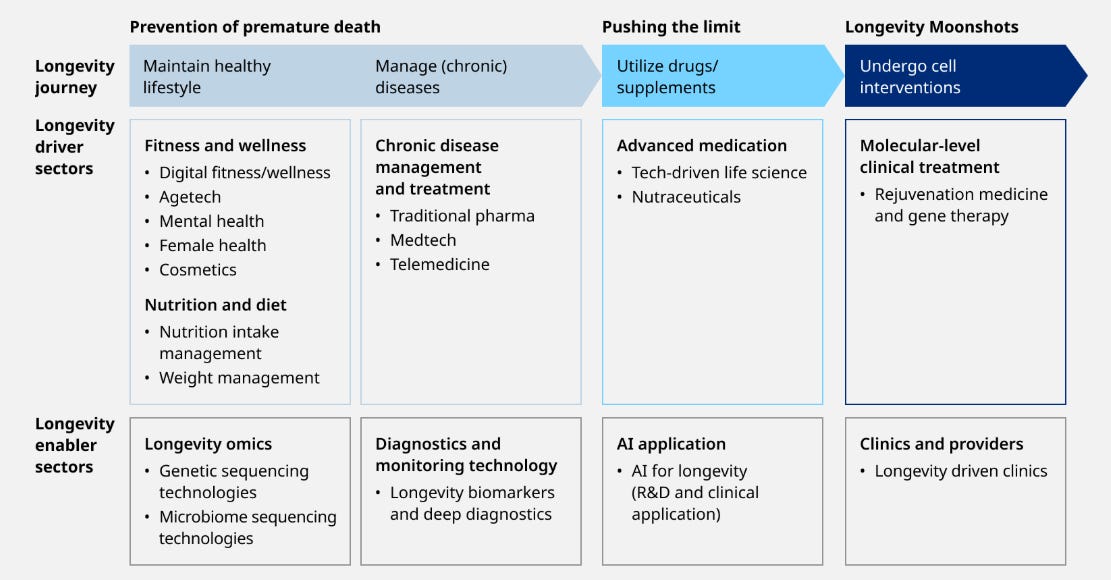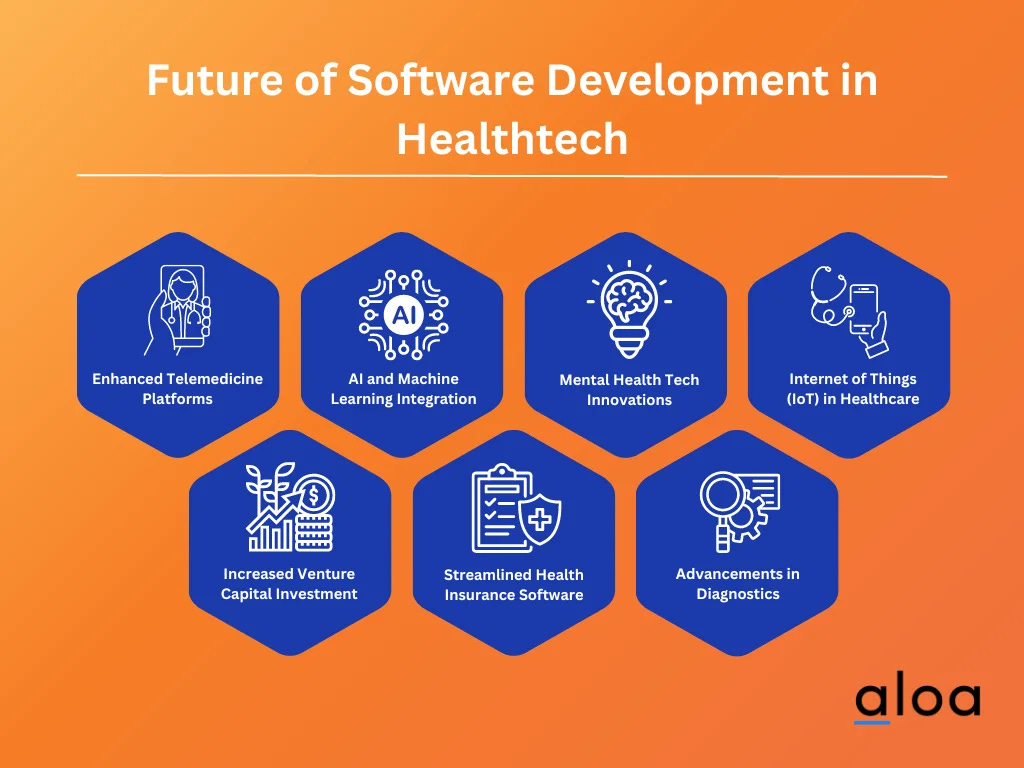HealthTech, Reprogrammed
Autonomous, ecological, and sovereign healthcare by design
This is a newsletter exploring how AI, climate change, and geopolitics are reshaping the foundational layers of human and planetary health.
We live in a time when biology is (re)programmable, nature is intervenable, and national borders are increasingly fluid. 1000bai examines this transformation through the lens of founders, funders, researchers, and thinkers who are rebuilding our deepest infrastructures: how we heal, grow, and survive.
Each edition will offer insight into what’s being rewritten and why it matters, with rounded analysis, provocative ideas, and curated signals from the frontier of living systems.
No noise. Just signal.
—Koshu (Okinawa) & Ander (Basque Country) of Lifetime Ventures.
The Problem
Global healthcare systems are aging both structurally and economically. The world spends over $9 trillion annually on health (~11% of global GDP), yet:
10 million people die each year due to lack of access to care.
Over 50% of medical data goes unused, lost in analog silos or incompatible systems.
The average clinical trial takes 9 years and costs $1.3 billion.
Diagnostic error rates remain as high as 15%, contributing to an estimated 250,000 deaths annually in the U.S. alone.
In short, we face a triad of dysfunction:
Inefficiency: Manual coordination, outdated infrastructure, high overhead.
Inaccessibility: 3.5 billion people lack access to essential health services.
Inequality: Only 2% of global health R&D is focused on diseases affecting the bottom billion.
Why Now?
The convergence of multiple variables is unlocking a new era in health and how we heal:
AI in healthcare
Foundation models like AlphaFold and ESMFold compress protein prediction timelines from years to hours.
AI-native trials (Unlearn.AI, VeriSIM Life) use synthetic control arms and simulation to reduce trial costs and durations.
Climate change is amplifying global health risks:
WHO projects 250,000+ annual deaths from heatwaves, vector-borne disease, and food insecurity by 2050.
Vector habitats (malaria, dengue) are expanding due to temperature rise.
Geopolitics: Health is becoming a matter of sovereignty.
90%+ of U.S. antibiotics rely on China.
Countries are racing to build national bio-stacks (from genomics to drug manufacturing) amid rising tension over supply chains and data control.
These shifts are transforming healthcare from an institutional system to a decentralized, data-driven, proactive and sovereign model. More centered on health, not on disease.
The Future
We’re not just digitizing healthcare, we’re reprogramming it as intelligent infrastructure.
The next system will be autonomous, ecological, and sovereign by design. It will treat health like a real-time signal, predict illness before it strikes, and encode resilience into its architecture.
Expect to see:
Always-on diagnostics: Biosensors embedded in wearables, toilets, and ambient environments detecting biomarkers, pathogens, and chronic shifts—before symptoms appear.
AI-native trials and treatments: Simulation-based trials with synthetic controls, and treatment pathways continuously optimized by real-world data and predictive models.
Autonomous care agents: Language models acting as 24/7 triage nurses, diagnostic copilots, and chronic care managers—especially in systems with clinician shortages.
Federated bio-intelligence: Sovereign genomic and health data platforms enabling precision medicine without exporting raw data.
Ecological risk integration: One Health platforms tracking zoonotic threats, pollution, and microbiome collapse as critical health inputs.
The real shift? Health is being reimagined by founders at the frontier of biology, software, and statecraft, building systems that heal not just bodies, but biospheres.
Rabbit Hole
📚 Read: The Age of Scientific Wellness (Leroy Hood), Lifespan (David Sinclair), The Future of Medicine (James Temperton, WIRED).
🗞 Click: Nature Biotechnology, MIT J-Clinic, NIH ARPA-H.
🎧 Listen: Bio Eats World (a16z), FoundMyFitness (Rhonda Patrick), The Drive (Peter Attia), Huberman Podcast (Andrew Huberman)
🎫 Attend: HLTH (Las Vegas), Longevity Summit (Dublin), BioJapan (Yokohama).








